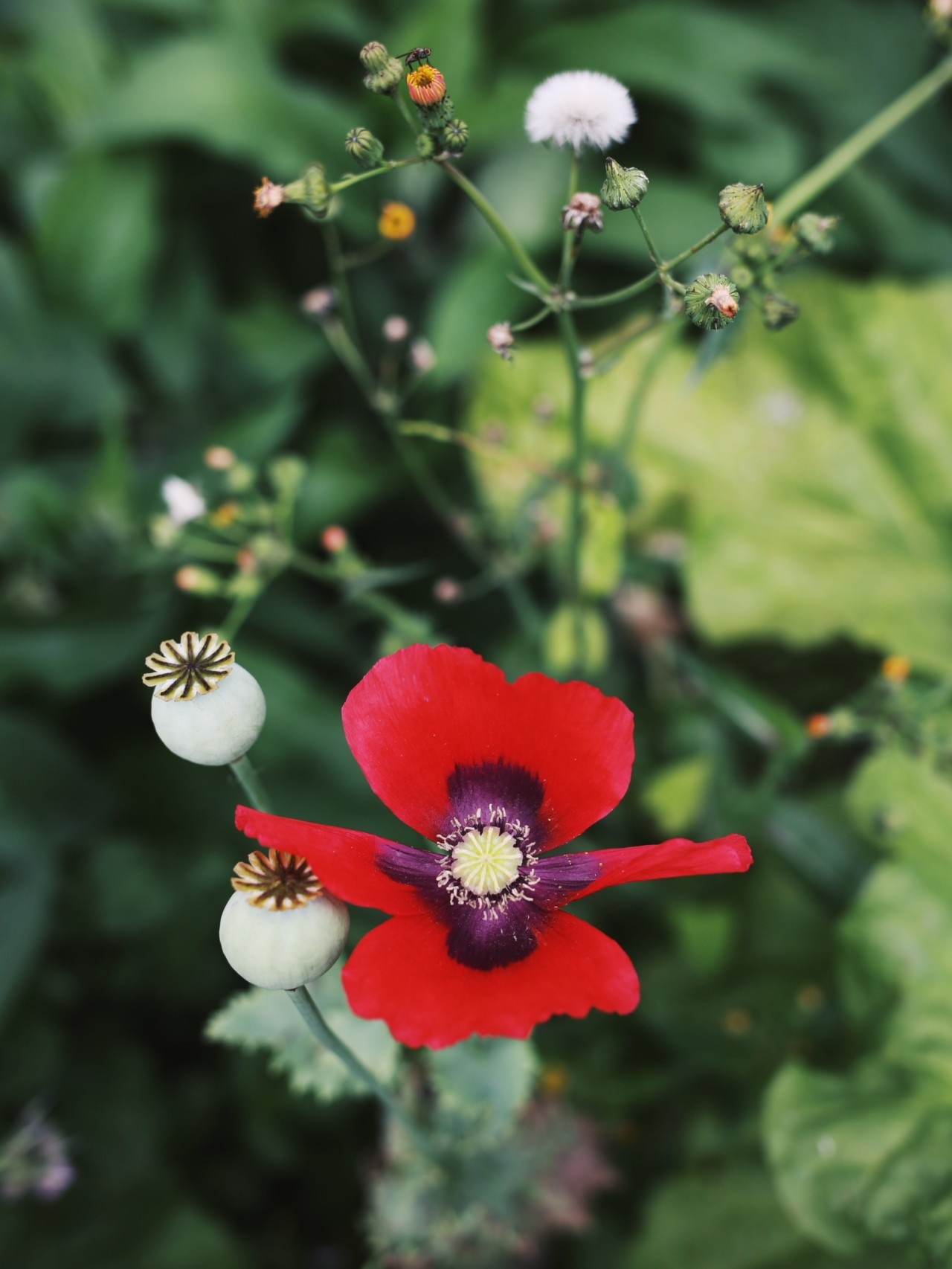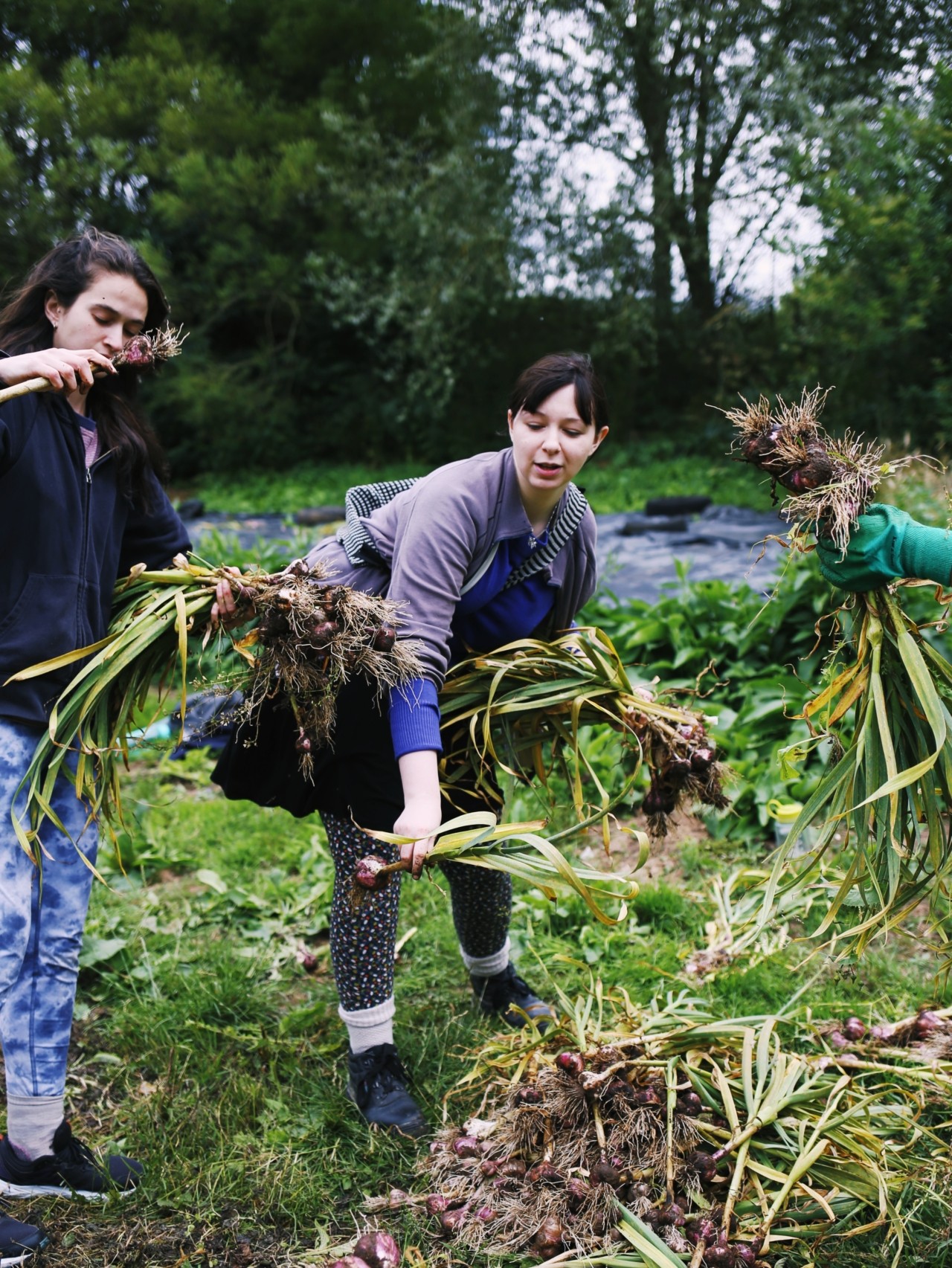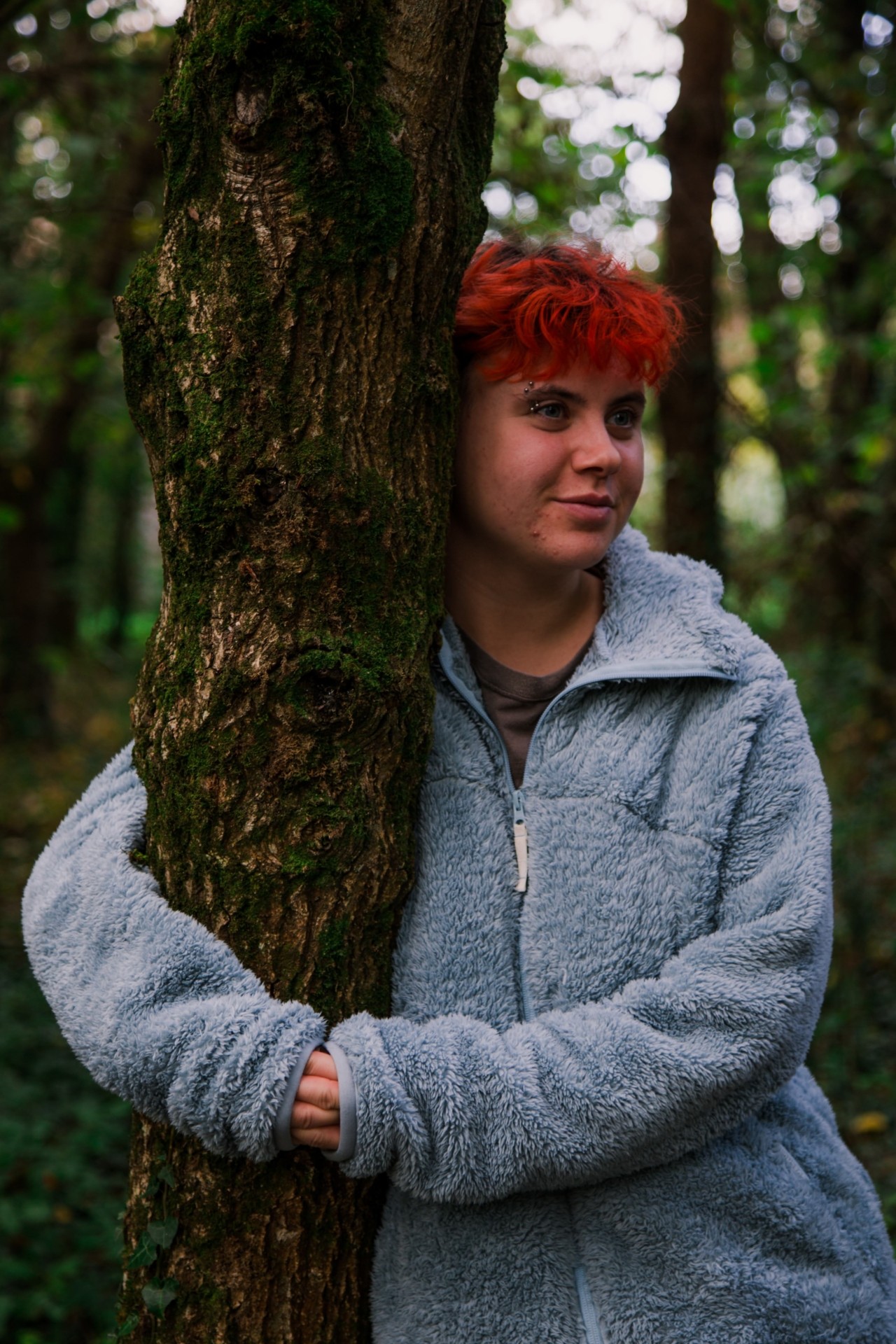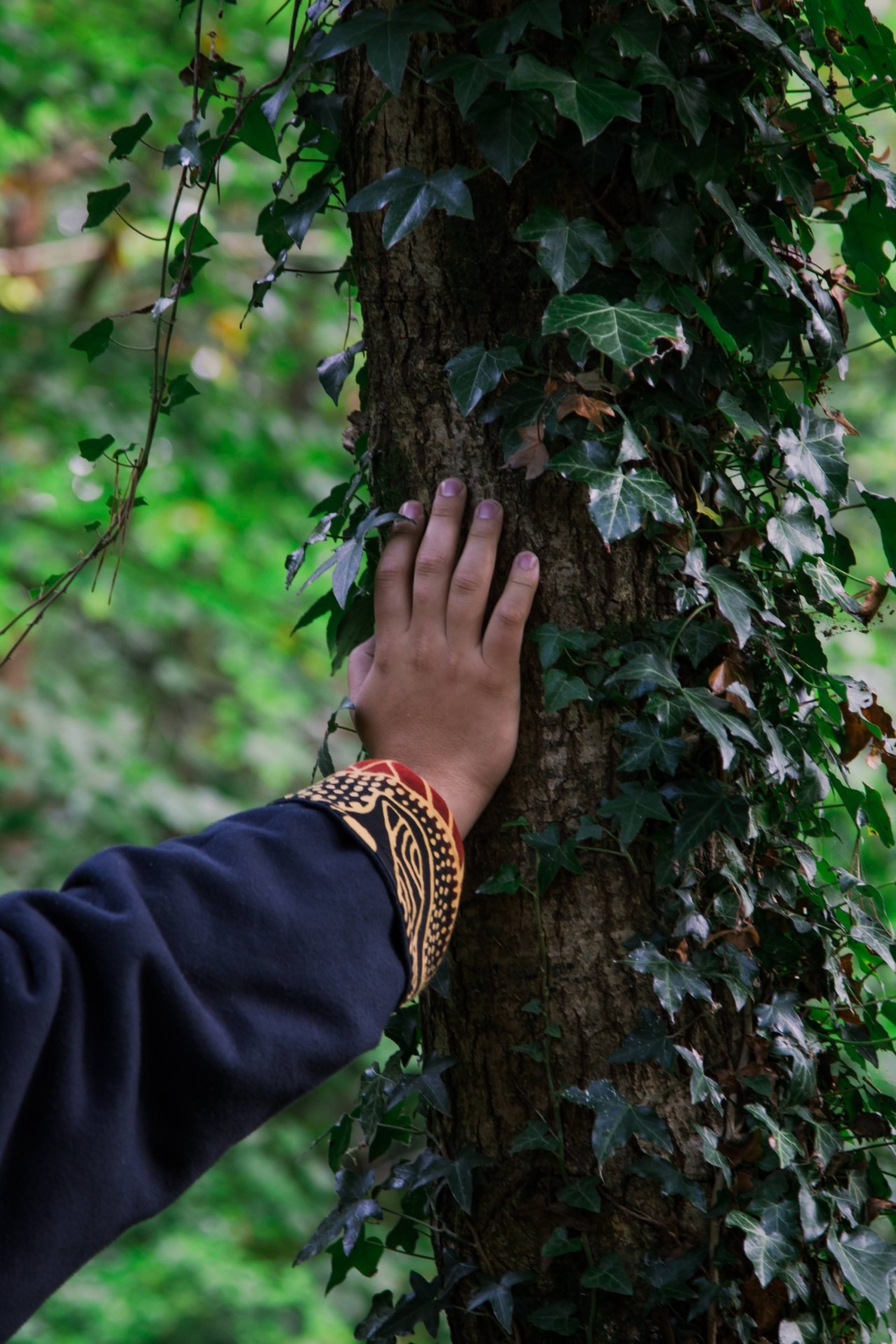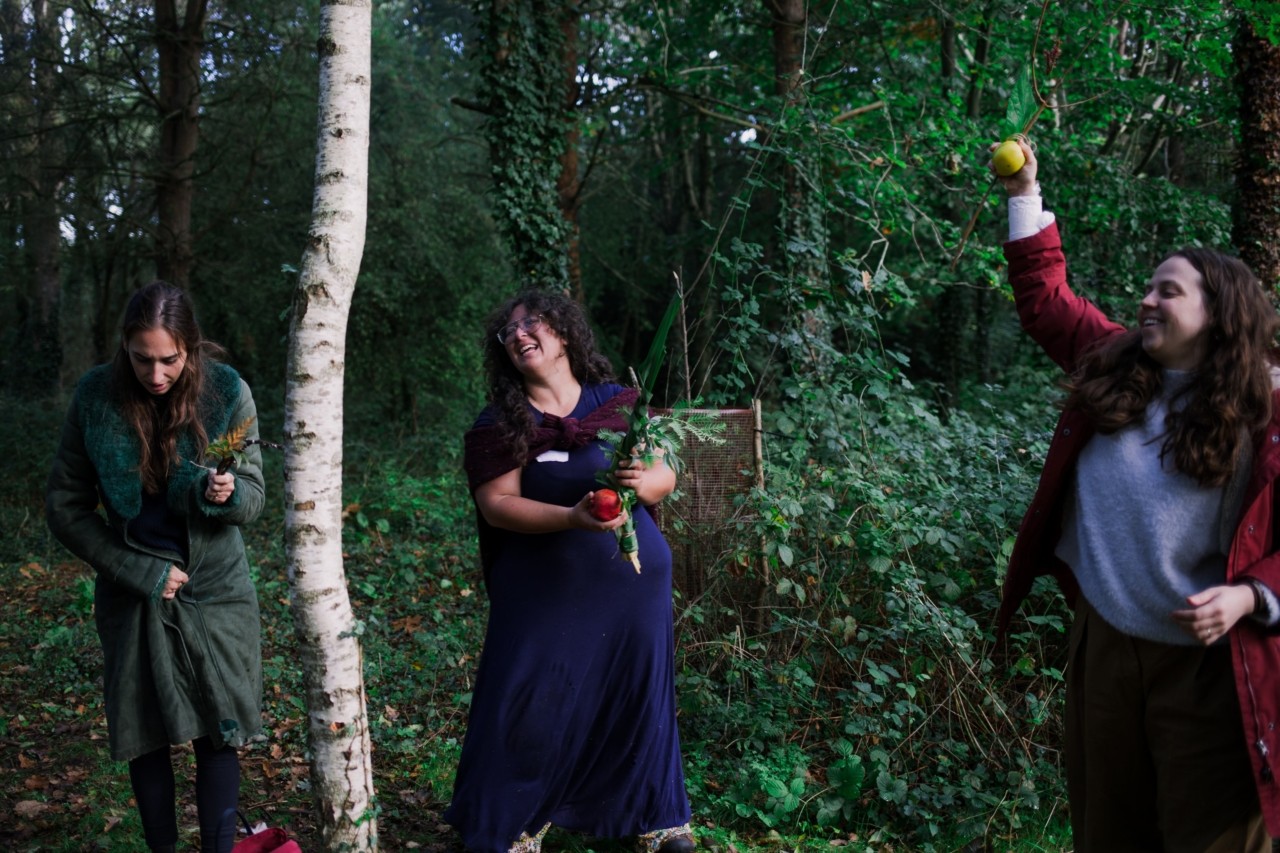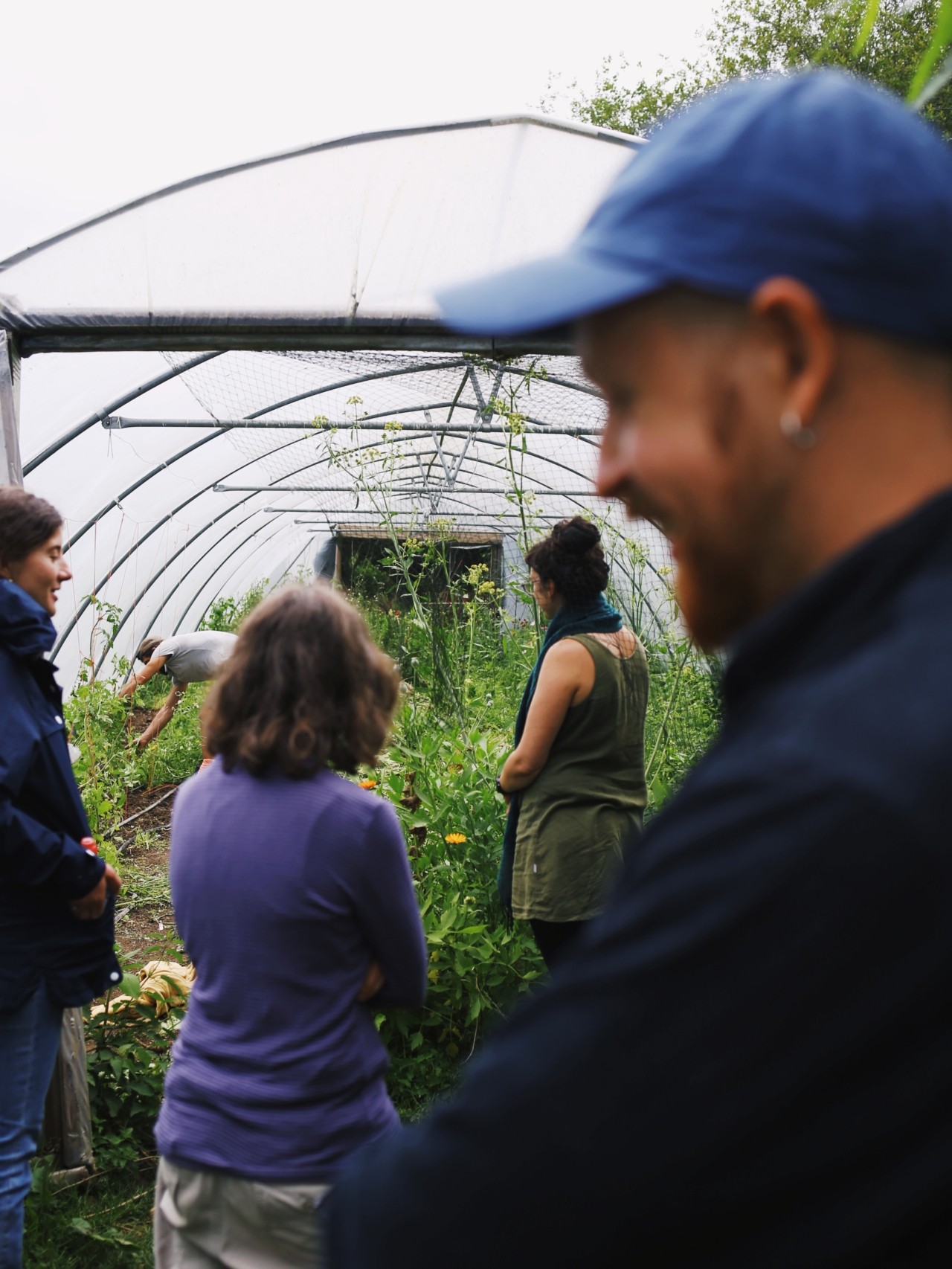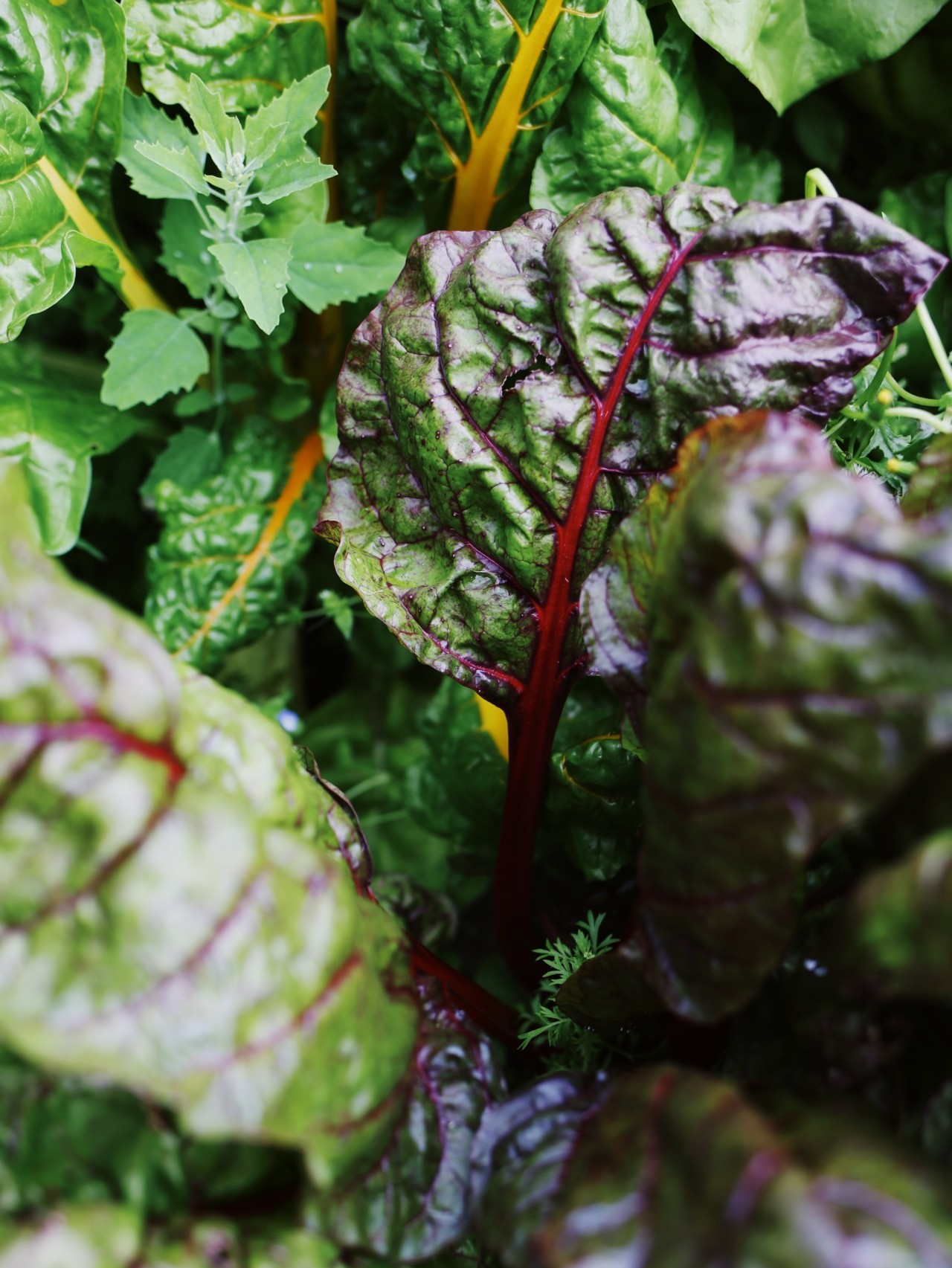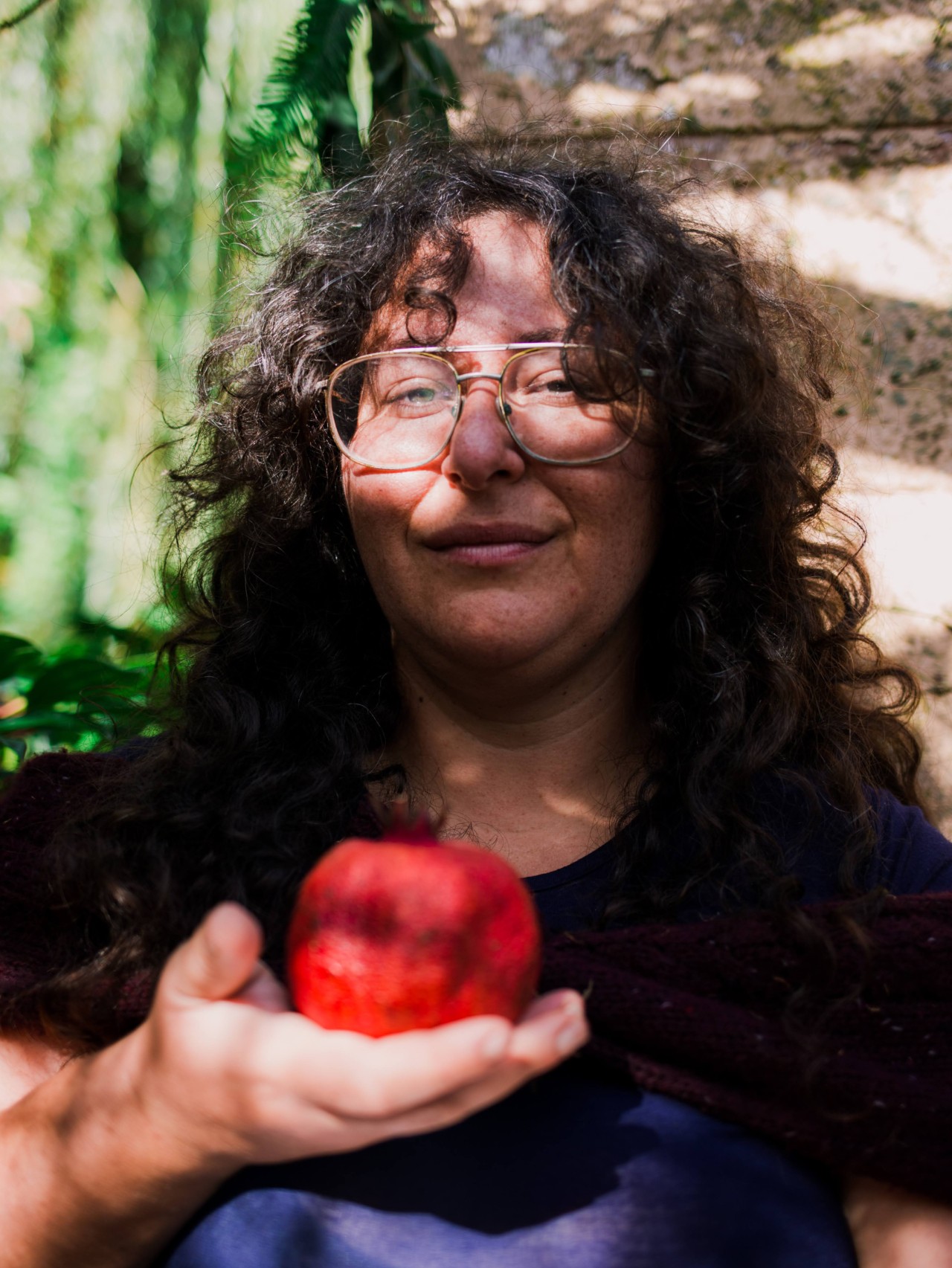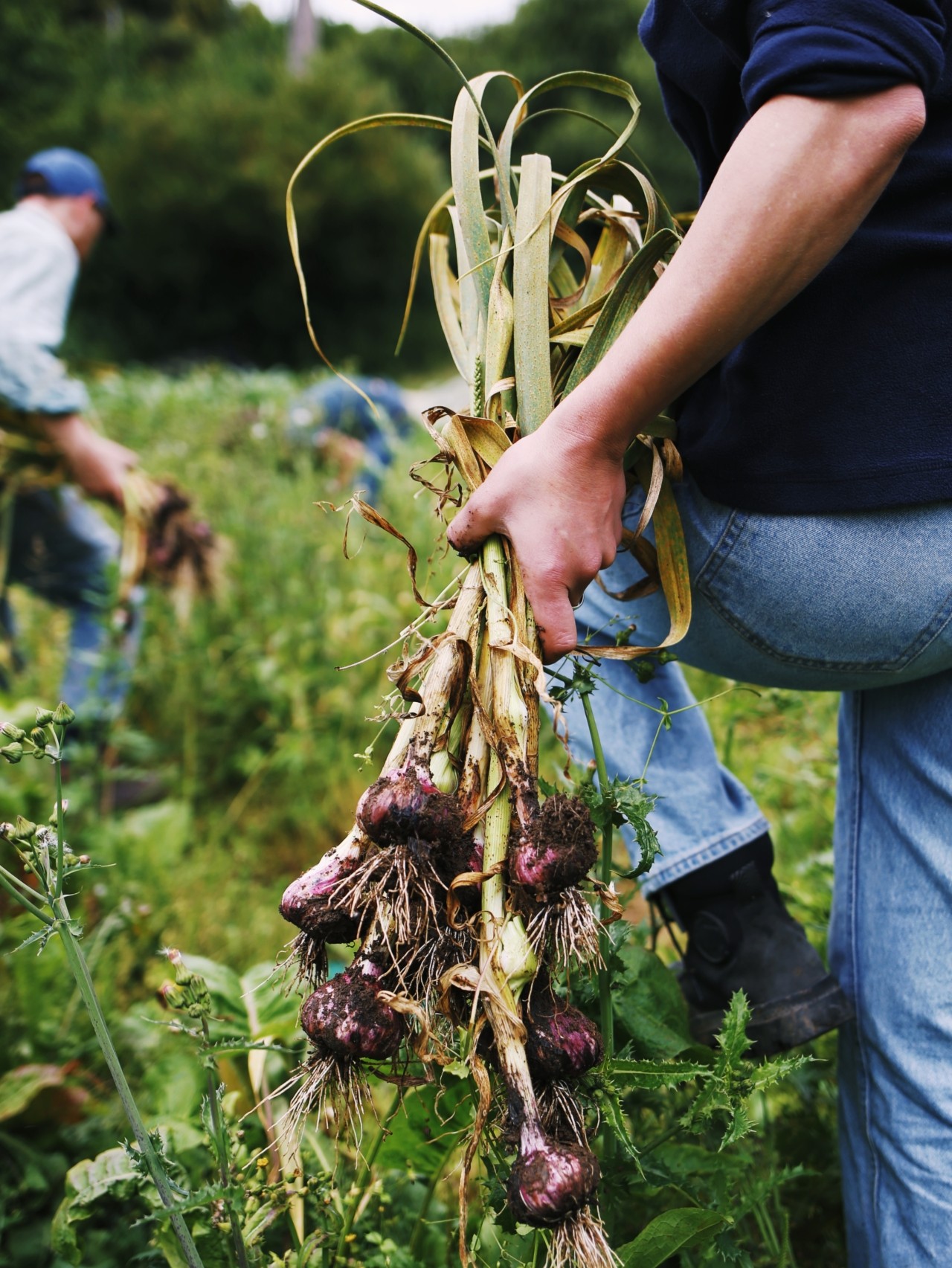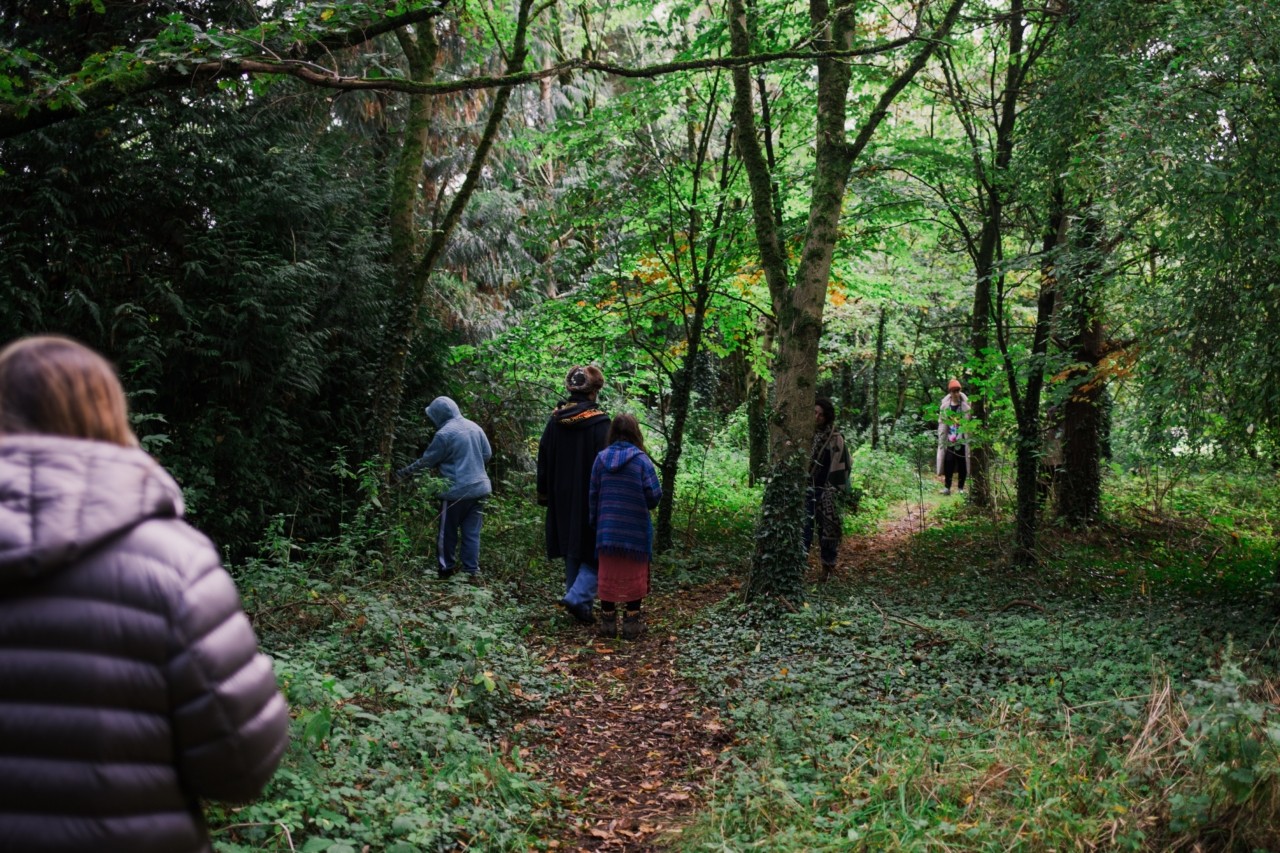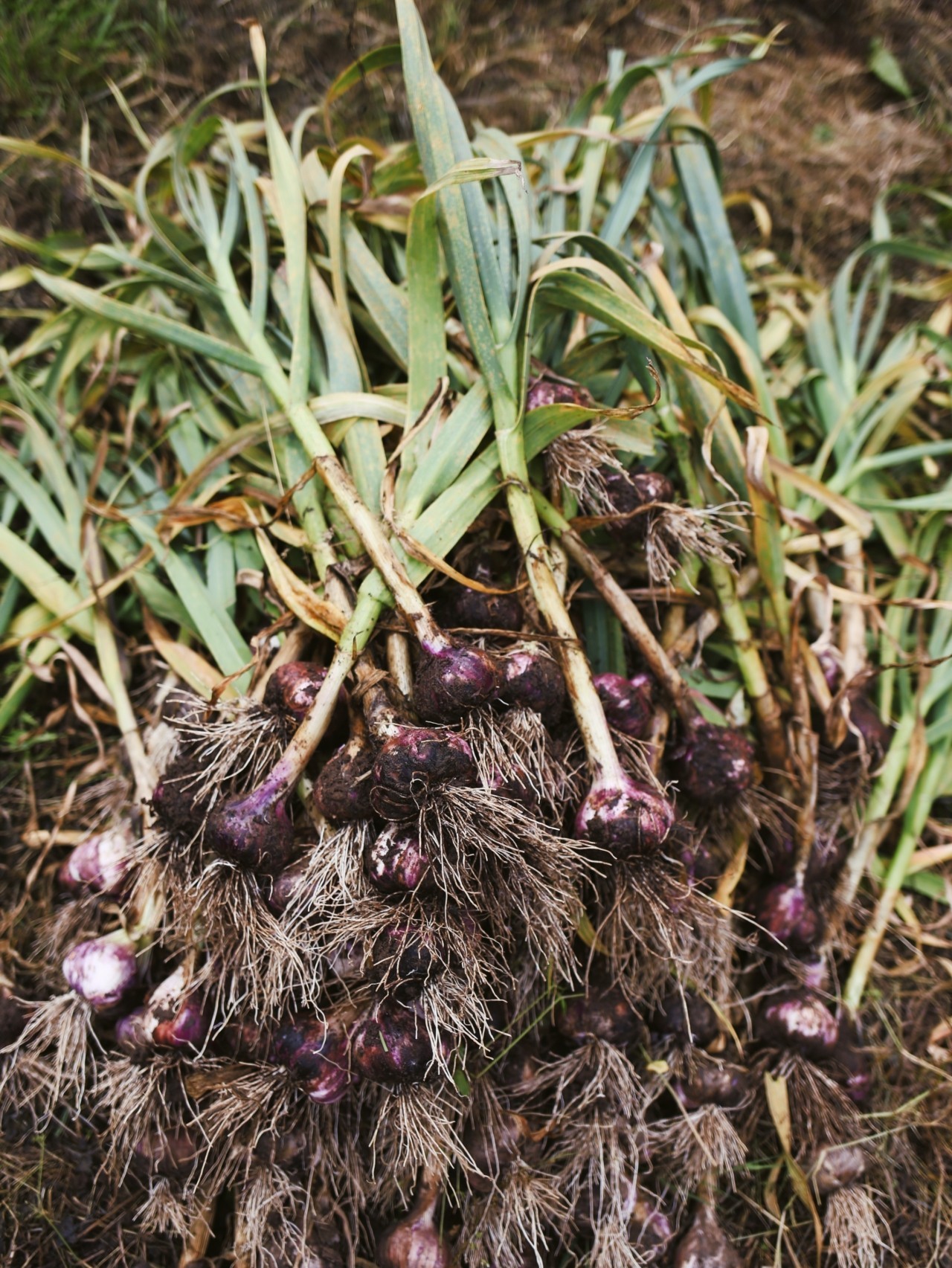

Words and photographs by Talia Woodin
I grew up in a pretty unconventional household. My upbringing was shaped by an amalgamation of practices and traditions my mother had picked up from her Orthodox Jewish upbringing, her environmental and political organizing, as well as a decade spent in both Israeli and Palestinian communities. With family life molded by historical, political, and social circumstances, my identity both as a Brit and as an Ashkenazi Jew always felt greater than my own personal experiences.
Whether through my great-grandmother’s matzah ball soup, vegetables grown in our local community allotment or dates from Palestinian farmers, food was central to our intersecting identities at home. It was also central to how I was taught to understand the world around me and my place in it. I had the privilege of being raised with a recognition of where my food came from, how it’s grown and sourced, and why an awareness of context matters; notions that were rooted in environmental justice, taught to me by my mother.
Beyond the food we ate, she stressed that context was crucial to better understand all injustice, including those that have long been taking place in Israel—which she persistently refers to as “Israel/Palestine.” In the last few weeks, the world has witnessed the bombardment of Gaza in the name of Israel’s so-called defence, and by extension the supposed protection of all Jewish people. Myself and countless others understand this not as an isolated crisis, but the Israeli state sanctioned displacement and persecution of the Palestinian people that has been developing for decades, long before the attack on October 7, since 1948, the year of Israel’s establishment and what Palestinian’s refer to as the Nakba, meaning “catastrophe” in Arabic.


From a young age I was taught that my family’s connection to the land of Israel/Palestine should not require the suppression of anyone else’s, including our close family friends who are Palestinian citizens of Israel and who we spent time with during my childhood. Although not fully understanding the extent and severity of the violent mechanisms and institutions that uphold the Israeli state until my later teenage years, I was never shielded from reality. And though heartbreaking, I am grateful for this exposure. I see myself as one of the fortunate Jews who was raised with a beautiful, intersectional Judaism—far removed from the meticulous conditioning of Zionism, the belief that security and autonomy for the Jewish people could only be achieved through the establishment of a nation state in the land of Palestine. Regardless, I might add, of the impact of creating such a state on existing populations of said land.
Now, as an adult, when bearing witness to the horrifying genocide unfolding in Gaza, I stand firm in the knowledge that these atrocities do not represent me, my people, or our want for collective safety.
I see myself as one of the fortunate Jews who was raised with a beautiful, intersectional Judaism—far removed from the meticulous conditioning of Zionism.
The main takeaway from my childhood is that our identities, our culture, and our heritage are inextricably tied to the world around us, both in a political and ecological sense. The Hebrew prayer, “shehecheyanu, v’kiy’manu, v’higiyanu laz’man hazeh” gives thanks for the changing seasons and all that they provide. It reminds us of the importance of the natural world, and the sacredness of all that it contains. In my opinion, it speaks to a Judaism that holds social and environmental justice at its core.
After leaving home at 19, I started organizing around climate justice. For the most part, my experience of this work, which is predominantly direct action based, was devoid of any sustaining communal or cultural practices. Meanwhile, personal experiences of antisemitism within various different organizations left me feeling isolated and misunderstood, and with a growing desire to connect with other Jewish people within these spaces. Enter: Miknaf Ha’aretz.



Founded by Sara Moon and Samson Hart in 2020 after experiencing similar disconnects between their Jewish identities, community organizing, and land work, the organization was set up with the aim of building solidarity across Jewish communities impacted by multiple oppressions, displacements, and unjust systems. Miknaf Ha’aretz started out as a call for the creation of a zine that explored Jewish diaspora and land justice, but has since become a thriving community centered on cultural and educational decolonial practices. These include organizing alternative Jewish youth camps, running virtual and in-person courses and workshops, as well as collectively practising Jewish traditions with ongoing analysis informed by political and social theory.
“Samson and I had grown up in the same community in Manchester that was so far from land and nature, and that, politically, was very right-wing—very Zionist,” Moon said. “Both of us had spent time in Palestine, learning more about what was happening and doing solidarity activism. When we returned, we were growing food [in the UK], and wanted to affirm that we can be Jewish on the land here and simultaneously have a liberated relationship with land that looks very different to the kind of connection we’d learned about growing up.”
Moon’s experience reflects a common one within the Jewish diaspora in the UK and the rest of the world.


The insidiousness of Zionism has taken hold of entire communities over recent generations, and has resulted in a homogenization and reduction of both our culture and our faith. By prioritizing a relation to the land of Israel over our own homes, it has also created a disconnect from the land that those of us in the diaspora live on. Like many of us, Moon described growing up feeling “dislocated from where I am” and “a real grief that I’d learnt this love for another land and I hadn’t learned to love where I was.” By extension, now more than ever, a growing number of Jews also experience the grief of having our trauma weaponized and used to justify the genocide being enacted by the Israeli state on the Palestinian people in Gaza—regardless of our connection or disconnection to Israel.
“We want to create a space informed by the knowledge that justice and liberation are our core values,” Moon said. “[Miknaf is] doing serious political education and cultural repair in the Jewish community, while also creating space for Jewish people with more radical perspectives and politics to gather without having to hide or silence parts of ourselves.”
Miknaf Ha’aretz allows space and potential for the redefining of our Jewishness based on a collective want for liberation of all peoples, not just our own.
In its short existence, the organization’s mission has so far been a success. By cultivating spaces that nurture a network of British Jews engaged with land justice work, Miknaf Ha’aretz is encouraging us to dismantle the increasingly nationalist and right-wing form of Judaism that many of us were raised with. In exchange, the organization nurtures a Judaism that celebrates and cherishes diversity, collectivism, and transience of both state and nationality. It also creates capacity for many of us to engage with the Palestine solidarity movement, for example, by facilitating Jewish blocs at protests and engaging with outreach in our communities—and has even resulted in members of the organization setting up groups such as Jewish Anti-Zionist Action and participating in Na’amod’s campaigning.
“For me, affirming that sense of land connection is a diasporist principle and practice,” said Moon. “I get to be here, not thinking I’ve got to move away; that this isn’t the place for me and [that I have to] make Aliyah (the migration of Jews back to Israel/Palestine), because I’m not safe here. It’s important for so many communities in the UK who have also been taught that they don’t belong here.”


Meaning the “end of the Earth” in ancient Hebrew, the name Miknaf Ha’aretz resonated with Moon and Hart when they stumbled across the term in the book of Isaiah. The term also has connotations of a “winged edge,” and Moon described how “there’s a possibility that emerges even in these times of collapse and devastation. What does it mean to really step into grief and horror? Isaiah was a prophet and a walker of those edges, and saw something beyond the despair of the end.”
Perhaps that possibility is freedom from the divisions of state and nation; in justice. For myself and many others, Miknaf Ha’aretz has come to encapsulate the intersections between our Jewish identities, politics, and connection to nature. It allows space and potential for the redefining of our Jewishness based on a collective want for liberation of all peoples, not just our own—and of a transient, just, and fluid rootedness to our homes and land wherever they are. One that is not dependent on occupation, war mongering, and the oppression of another peoples in order to legitimise itself.
In the words of Puerto Rican feminist thinker Aurora Levins Morale, whose words are often shared within Miknaf Ha’aretz, “How do we abolish ownership of land and respect people’s ties to it? I don’t have the answer. But I know that only when we can hold each people’s particular memories and connections with the land as a common treasure, can the knowledge of our place on it be restored.”

How Miknaf Ha’aretz Is Building a Decolonial Movement Through Land Justice
